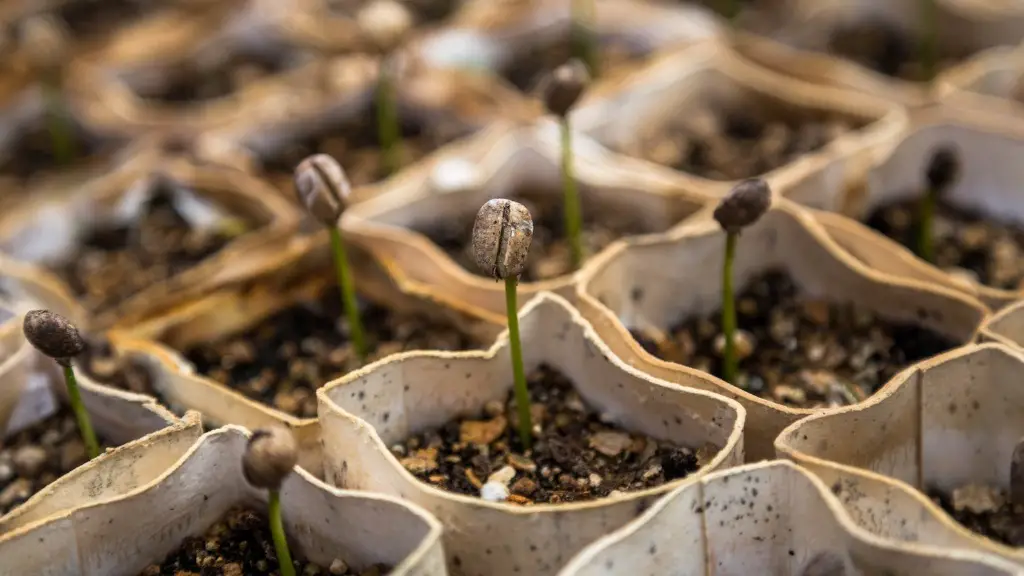Drinking Coffee During Your First Trimester
The first trimester of a pregnancy needs to be handled delicately and cautiously, as it marks a very special period in an expecting mother’s life. During this time, some expectant mothers may feel a strong urge to familiarize themselves with all the dos and don’ts of a healthy pregnancy. One of the questions that often arise among pregnant women is whether it’s safe to drink coffee during the first trimester?
The answer is both yes and no, depending on a variety of factors such as the amount of coffee ingested daily and its caffeine content. It is usually advised that pregnant women should avoid taking in more than 200mg of caffeine daily as higher doses can pose a risk to the baby’s health, especially during the first trimester.
According to experts, caffeine penetrates the placenta and can reach your baby. Therefore excessive caffeine intake can have an impact on your baby’s growth. High levels of caffeine in a pregnant woman’s body can lead to a decrease in the levels of oxygen and blood pressure in the baby, thus potentially resulting in low birth weight.
Furthermore, an overdose of caffeine can lead to an increased risk of experiencing a miscarriage, especially during the first trimester. A study conducted by The American Journal of Obstetrics and Gynecology found out that the risk of experiencing a miscarriage increased by 38% and that of experiencing a still birth too increased by 75% when pregnant women ingested more than 200mg of caffeine daily.
Caffeinated beverages contain differing amounts of caffeine and their effects on a pregnant woman and her baby can be varied. Coffee has been found to have higher amounts of caffeine (in general) than some beverages like tea, cola and energy drinks. Therefore it can be said that they should be limited to one or two cups in a 24 hour period during the first trimester.
Even though daily caffeine intake should be kept minimal during pregnancy, expecting mothers should pay close attention to the types of beverages they should and shouldn’t have. In fact, certain drinks like green tea have unmatched health benefits during pregnancy and thus, should be taken in moderation.
Women should also be careful when calculating their daily caffeine intake as caffeine is not only found in coffee and tea, but also in a variety of snacks like chocolate and dark chocolate. Therefore pregnant women should add up their daily caffeine intake from all sources and ensure that it is within the recommended window.
Recommended Alternatives to Coffee
If a pregnant woman is looking for an alternative to coffee during their first trimester, then she should consider switching to decaffeinated coffee. Decaffeinated coffee contains very minimal amounts of caffeine and its consumption can still allow the expecting mother her regular caffeine intake. The process of decaffeinating coffee involves the removal of caffeine from its beans and thus, making it a much safer alternative.
Pregnant women can also consider caffeinated drinks like green tea which are much healthier than regular coffee. It is also rich in antioxidants and contains a considerable amount of caffeine which can allow the pregnant women their daily caffeine fix with much less stress.
Safe Alternatives to Caffeine
If a pregnant woman has become too sensitive to caffeine and is looking for a caffeine-free alternative then she should consider herbal tea. Herbal teas contain no caffeine and are loaded with plenty of healthy benefits needed for a healthy pregnancy.
Mint, chamomile, lemongrass, ginger, and orange pekoe are some of the herbal teas that can provide pregnant women with relief during the first trimester. Furthermore, these herbal teas are also known to help reduce stress which pregnant women may experience during their first trimester.
Alternatively, expecting mothers can also switch to decaffeinated alternatives like decaffeinated sodas and hot cocoa. Pregnant women can also explore the versatility of fruits like mangoes and papayas that are rich in vitamins and minerals. Juices can also be a great alternative if the expecting mother is looking for something that can quench her thirst and replenish her body.
Potential Risks When Drinking Coffee During Pregnancy
Drinking coffee during pregnancy may lead to potential risks and sometimes can also be linked to longer labor, increased risk of preterm labor, and exhaustion during labor. Coffee also has diuretic properties, thus causing the pregnant women to become dehydrated. Furthermore, while pregnant women are already prone to feeling tired, coffee’s stimulant effects may contribute to exhaustion during delivery.
However, it is important to note that coffee lovers should not feel discouraged or hesitant to indulge in the beverage in moderation during their first trimester of pregnancy. Pregnant women should make sure to limit their caffeine intake, thus allowing themselves to indulge in their favorite java drink reaping its many health benefits. Furthermore, expecting mothers should have an open discussion with their doctor before making any dietary changes in order to ensure that their overall pregnancy period remains stress-free and healthy.
Conclusion
It is key for pregnant women to pay attention to their daily caffeine intake during their first trimester, and opt for healthy caffeine-free alternatives such as herbal tea, decaffeinated coffee, and other natural beverages. Furthermore, women should keep an open dialogue with their doctors in order to ensure that their daily caffeine intakes are within the recommended safe bounds.



